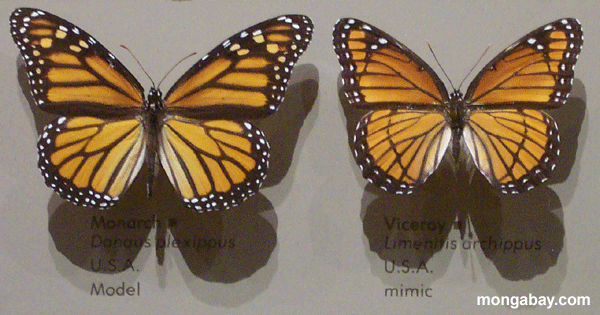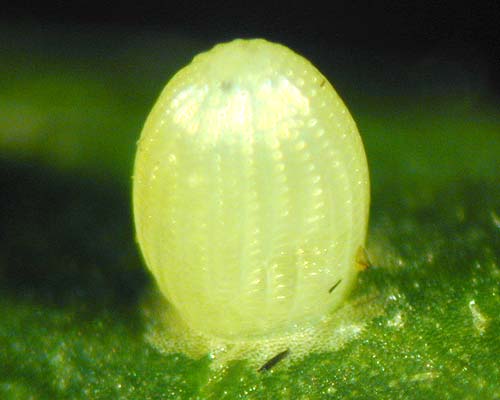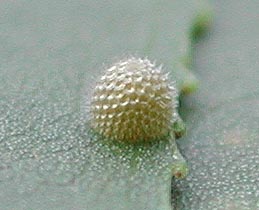Skip to comments.
Time to Give It Up [Intelligent Design and Irreducible Complexity]
Seed Magazine ^
| 4/10/06
| Britt Peterson
Posted on 04/11/2006 5:11:24 PM PDT by LibWhacker
New research chips away at the "irreducible complexity" argument behind intelligent design.
Lehigh biochemistry professor Michael Behe and his cronies in the intelligent design community have attempted to poke holes in evolutionary theory using an idea dubbed "irreducible complexity"—the notion that complex systems with interdependent parts could not have evolved through Darwinian trial and error and must be the work of a creator, since the absence of any single part makes the whole system void. However, a paper published in the April 7th issue of Science provides the first experimental proof that "irreducible complexity" is a misnomer, and that even the most complex systems come into being through Darwinian natural selection.
"We weren't motivated by irreducible complexity," said Joe Thornton, an evolutionary biologist at the University of Oregon and a co-author of the paper. "How complexity evolved is a longstanding issue in evolutionary biology per se, and it's once we saw our results that we realized the implications for the social debate."
Thornton's team has been studying one example of a complex system in which each part defines the function of the other: the partnerships between hormones and the proteins on cell walls, or receptors, that bind them. The researchers looked specifically at the hormone aldosterone, which controls behavior and kidney function, and its receptor.
"[This pairing] is a great model for the problem of the evolution of complexity," said Thornton. "How do these multi-part systems—where the function of one part depends on the other part—evolve?"
Thornton and his co-investigators used computational methods to deduce the gene structure of a long-gone ancestor of aldosterone's receptor. They then synthesized the receptor in the lab. After recovering the ancient receptor—which they estimate to be a 450-million-year-old receptor that would have been present in the ancestor of all jawed vertebrates—Thornton's team tested modern day hormones that would activate it. Although aldosterone did not evolve until many millions of years after the extinction of the ancient hormone receptor, Thornton found that it and the ancient receptor were compatible.
This cross-generational partnership is made possible, Thornton explained, by the similarity in form between aldosterone and the ancient hormone that once partnered with the receptor.
"The story is basically that a new hormone evolved later and exploited a receptor that had a different function previously to take part in a new partnership," said Thornton.
The principal at work in the evolution of complex systems is molecular exploitation: when an individual component casts around for other materials that might work together with it, even though those elements might have evolved as parts of other systems.
"Evolution assembles these complex systems by exploiting parts that are already present for other purposes, drawing them into new complexes and giving them new functions through very subtle changes in their sequences and in their structures," Thornton said.
While the mutually dependent parts do not evolve to be perfectly complementary to one another, after molecular exploitation, they cleave together and create an illusion of irreducible complexity.
"Such studies solidly refute all parts of the intelligent design argument," wrote Christoph Adami, of the Keck Graduate Institute of Applied Life Sciences, in an introduction to the Science paper. "Those 'alternate' ideas, unlike the hypotheses investigated in these papers, remain thoroughly untested. Consequently, whatever debate remains must be characterized as purely political."
TOPICS: Culture/Society; Philosophy
KEYWORDS: biology; complexity; crevolist; design; evolution; intelligent; irreducible
Navigation: use the links below to view more comments.
first previous 1-20 ... 101-120, 121-140, 141-160, 161-164 next last
To: manwiththehands
["That would be the equivalent of the question "what is origin of life". Evolution does not cover that."] Huh?
Which word did you have trouble with?
I thought the Godfather of Evolution, Charles Darwin wrote a book entitled "The ORIGIN of the Species".
Yes. The origin of SPECIES -- the branching diversity of life. Not the origin of LIFE itself. Try actually reading the book if you're still unclear on the concept, he's quite clear on the distinction.
Are you pro-evos backtracking from that, too?
No, but you've obviously never read the book, and are misunderstanding the title as well -- not to mention having a difficult time grasping what we "pro-evos" actually have been saying.
141
posted on
04/12/2006 4:43:34 PM PDT
by
Ichneumon
(Ignorance is curable, but the afflicted has to want to be cured.)
To: manwiththehands
[Thornton and his co-investigators used computational methods ...] I can make a computer say anything I want it to say.
Sure, if you're dishonest. Are you dishonest?
The researchers, on the other hand, were actually trying to get valid results out of the computers, and thus were able to get them.
"Computational methods". Programs don't write themselves.
They can, actually.
And this isn't the first time pro-evo's tried to foist computer "simulations" to "prove" evolution.
These were not "simulations", they were analysis of the real-world data, and if you have a specific objection to the actual computer models used to validate evolution, you might want to state it now, instead of just casting obnoxious and slanderous aspersions in general.
142
posted on
04/12/2006 4:46:12 PM PDT
by
Ichneumon
(Ignorance is curable, but the afflicted has to want to be cured.)
To: eddie2; aMorePerfectUnion
I keep wondering how a single cell with three billion bites of information evloved so quickly. I don't have to "wonder", I know. That's because I've bothered to educate myself on this subject.
I mean at one mutation per year your looking at three biilon years. That sounds like a mighty fast rate of mutate.
Here, read this and then get back to us when you have a better grasp of the mindboggling number of "evolutionary events" which occur in reality (as opposed to in your imagination).
143
posted on
04/12/2006 4:49:36 PM PDT
by
Ichneumon
(Ignorance is curable, but the afflicted has to want to be cured.)
To: manwiththehands; ndt
So where did these self-programming programs come from? Outer space? They evolved, in many cases from totally random collections of initial bits. I've personally watched this happen.
144
posted on
04/12/2006 4:53:35 PM PDT
by
Ichneumon
(Ignorance is curable, but the afflicted has to want to be cured.)
To: Ichneumon
" No, but you've obviously never read the book, and are misunderstanding the title as well --..."
Not only did he misunderstand the title, he didn't even get the name right. It's "The Origin of Species" not the "Origin of the Species". Basic errors like that don't bode well for a promising debate.
145
posted on
04/12/2006 5:41:31 PM PDT
by
CarolinaGuitarman
("There is grandeur in this view of life....")
To: CarolinaGuitarman; Ichneumon
"Origin of the Species"
How many times have we seen this error? Is it copied from some illiterate CRIDer website?
To: Virginia-American
"How many times have we seen this error? Is it copied from some illiterate CRIDer website?"
Probably. If it had been *The* species, then there may have been a case for the claim that Darwin was talking about the origins of life. It changes the whole meaning of the title.
147
posted on
04/12/2006 6:33:50 PM PDT
by
CarolinaGuitarman
("There is grandeur in this view of life....")
To: VadeRetro; Getready
If you don't know what it says, how do you know it's wrong? That's the eternal question for the anti-evolutionists. As you've noticed, they aren't at all familiar with what biology actually says about living things, but by gosh, the anti-evolutionists *know* it must be wrong anyway...
148
posted on
04/12/2006 7:12:24 PM PDT
by
Ichneumon
(Ignorance is curable, but the afflicted has to want to be cured.)
To: Ichneumon
But since the devil's bride, Reason, that pretty whore, comes in and thinks she's wise, and what she says, what she thinks, is from the Holy Spirit, who can help us, then? Not judges, not doctors, no king or emperor, because [reason] is the Devil's greatest whore.
-- Martin Luther
Yeah, I got a source.
149
posted on
04/12/2006 7:27:14 PM PDT
by
PatrickHenry
(Yo momma's so fat she's got a Schwarzschild radius.)
To: MineralMan; ConsentofGoverned
An interesting note here: The Monarch butterfly's caterpillars, through eating the milkweed plant become very bitter tasting to birds. A young bird will try to eat one of these, then gag violently. It will never even touch that caterpillar again. So, evolving a tolerance for the alkaloids in milkweed also turns out to protect these caterpillars from predation. The effect continues on to the adult. Here's another interesting note: Another butterfly looks very similar to the Monarch. It is also avoided by predatory birds, even though it doesn't ever ingest the milkweed. That's the Viceroy butterfly, which looks amazingly like a Monarch, even though it is not at all closely related, and feeds (as a caterpillar) on willow tree leaves and not on milkweed. Monarch butterfly on the left, Viceroy on the right:

These two species are different enough, other than the superficial similarity in coloration, that not only are they in different genuses (Danaus vs Limenitis), they're in different subfamilies.
And the divergent nature of the two species can easily be seen when you compare their chrysalis, caterpillar, or egg stages (in each pair the Monarch is on the left):






Again, evolution is an amazing thing.
Yes it is.
150
posted on
04/12/2006 7:42:51 PM PDT
by
Ichneumon
(Ignorance is curable, but the afflicted has to want to be cured.)
To: PatrickHenry
Yeah, I got a source. Hey, you're supposed to be off doing your taxes -- get back to work and stop noodling around here!
If you want to get it done more quickly, though, you might consider using the new alternative short tax form:

151
posted on
04/12/2006 7:46:48 PM PDT
by
Ichneumon
(Ignorance is curable, but the afflicted has to want to be cured.)
To: Virginia-American
How many times have we seen this error? Is it copied from some illiterate CRIDer website? Funny, the stuff you can trace that way. Someone copying from Lubenow quoting National Geographic misspelled "Turkana" as "Tukana." It has rippled from there including to FR threads.
Boy from Tukana.
152
posted on
04/13/2006 7:58:01 AM PDT
by
VadeRetro
(I have the updated "Your brain on creationism" on my homepage.)
To: Virginia-American
"Origin of the Species" How many times have we seen this error? Is it copied from some illiterate CRIDer website?
...just like the song "Spirit of THE Radio"...
< /irrelevant>
To: manwiththehands
...when a fruit fly finally "evolves" into "not a fruit fly but better". It simply hasn't been measured and it hasn't been observed. EVER. What about aristapedia (the development of antennae into an extra set of legs)? This is certainly a step into perceivable 'improvement', and has been observed in fruit flies.
Imagine a thousand or so collective mutations of this sort (something definitely possible in millions of years, over hundreds of millions of generations) - would you not have a new type of animal?

154
posted on
04/15/2006 8:33:28 PM PDT
by
Quark2005
(Confidence follows from consilience.)
To: Ichneumon
I never cease to learn from your posts. Thanks again.
155
posted on
04/15/2006 8:35:45 PM PDT
by
Quark2005
(Confidence follows from consilience.)
To: Quark2005
... antennae "evolving" into an extra set of legs. Listen to yourself. Then make it "personal".
156
posted on
04/16/2006 3:16:27 AM PDT
by
manwiththehands
("'Rule of law'? We don't need no stinkin' rule of law! We want amnesty, muchacho!")
To: manwiththehands
Listen to yourself. Then make it "personal". ??
Are you denying that antennae can't be made into legs by a simple mutation? It's been done in the lab.
157
posted on
04/16/2006 5:27:07 AM PDT
by
Quark2005
(Confidence follows from consilience.)
To: Quark2005
(bump bump bump bump bump)
(sound of MWTH beating his head on the table)
158
posted on
04/16/2006 5:56:59 AM PDT
by
manwiththehands
(I'm a single issue voter this year: illegal immigration.)
To: Mr Rogers
"This does NOT, in any way, solve irreducible complexity. It is equivalent to claiming you found a bolt in the car that could be used with a nut in a different location, and this therefor shows how fuel injection evolved from carburetors..."
I find this article, and irreducible complexity theories to both be equally unconvincing of anything.
From the layman's point of view, the entire conflict seems to be between two groups:
Scientists who have already made up their minds but lack the scientific knowledge and ability to prove or disprove anything this complex.
Christians who have already made up their minds but lack the scientific knowledge to prove or disprove anything this complex.
What we are left with is a pretentious, long-term war of words that we will not solve in the near future.
And... Happy Easter.
159
posted on
04/16/2006 6:24:40 AM PDT
by
Poser
(Willing to fight for oil)
To: Quark2005
Your argument makes about as much sense to me as you telling me that YOUR EARS started to MUTATE into LEGS, and it HAPPENED OVERNIGHT, and YOU find it "BENEFICIAL".
If that happens to you, let me know about it, OK?
160
posted on
04/16/2006 6:26:33 AM PDT
by
manwiththehands
(I'm a single issue voter this year: illegal immigration.)
Navigation: use the links below to view more comments.
first previous 1-20 ... 101-120, 121-140, 141-160, 161-164 next last
Disclaimer:
Opinions posted on Free Republic are those of the individual
posters and do not necessarily represent the opinion of Free Republic or its
management. All materials posted herein are protected by copyright law and the
exemption for fair use of copyrighted works.
FreeRepublic.com is powered by software copyright 2000-2008 John Robinson








